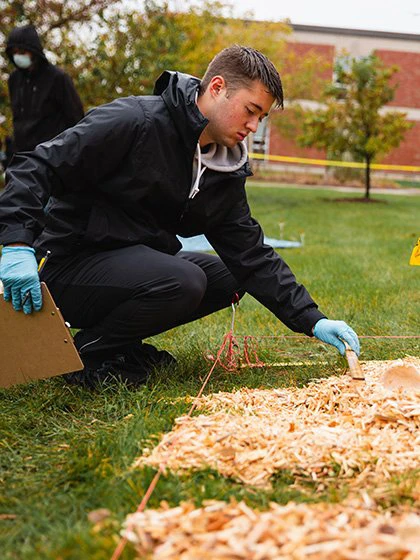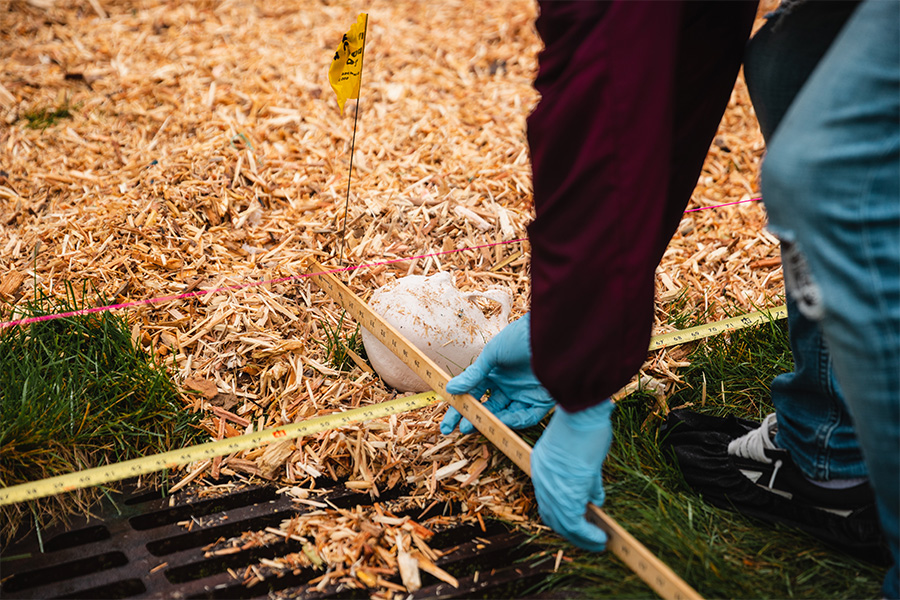


Applied Forensic Studies
Undergraduate Certificate
Overview of the forensic studies certificate
Forensic science uses physics, chemistry, biology and other sciences to help investigate and solve legal cases. It's a critical part of the justice system.
An undergraduate certificate in applied forensic studies will teach you field-specific techniques and social and cultural factors that shape forensic methods. You'll learn how to analyze remains, interpret evidence and examine bias.
This undergraduate certificate is open to students of all majors and pairs well with studies in criminal justice, psychology and anthropology.
Program Snapshot
Why study forensic science?
This undergraduate certificate trains you in forensic lab skills and explores the societal factors behind forensic theories.
As part of this certificate, you will:
- Learn investigation procedures, court testimony and witness handling.
- Apply anthropologist techniques to determine time of death, sources of skeletal trauma and identity information.
- Evaluate the strengths and limitations of techniques like fingerprinting, DNA analysis and other trace analyses.
- Explain and exhibit the ethical standards expected of forensic scientists.
Highlights of the forensic studies certificate
The forensic studies certificate
- Can be paired it will any major: Complement your studies in psychology, anthropology or other field to fit your career goals.
- Includes field experience: You'll complete an internship, co-op or research experience as part of your studies, giving you real-world experience in forensic science.
- Supports networking: Join student organizations like the Forensic Club to network and find community.
- Helps prepare you for certification: Work toward the American Board of Criminalistics certification. ABC certifications require a bachelor's degree, two years of lab experience and passing scores on specialty exams.

Earn field experience in forensic science
In addition to learning the theories of forensic science, you'll practice field techniques in real-world settings. All students in the undergraduate certificate program will complete an internship, co-op or research experience. Through these experiences, you'll practice techniques in real-life scenarios and learn from professionals already working in the field.
Request Information about CMU
By submitting this form, I agree to receive calls, emails and/or text messages from Central Michigan University to discuss furthering my education.